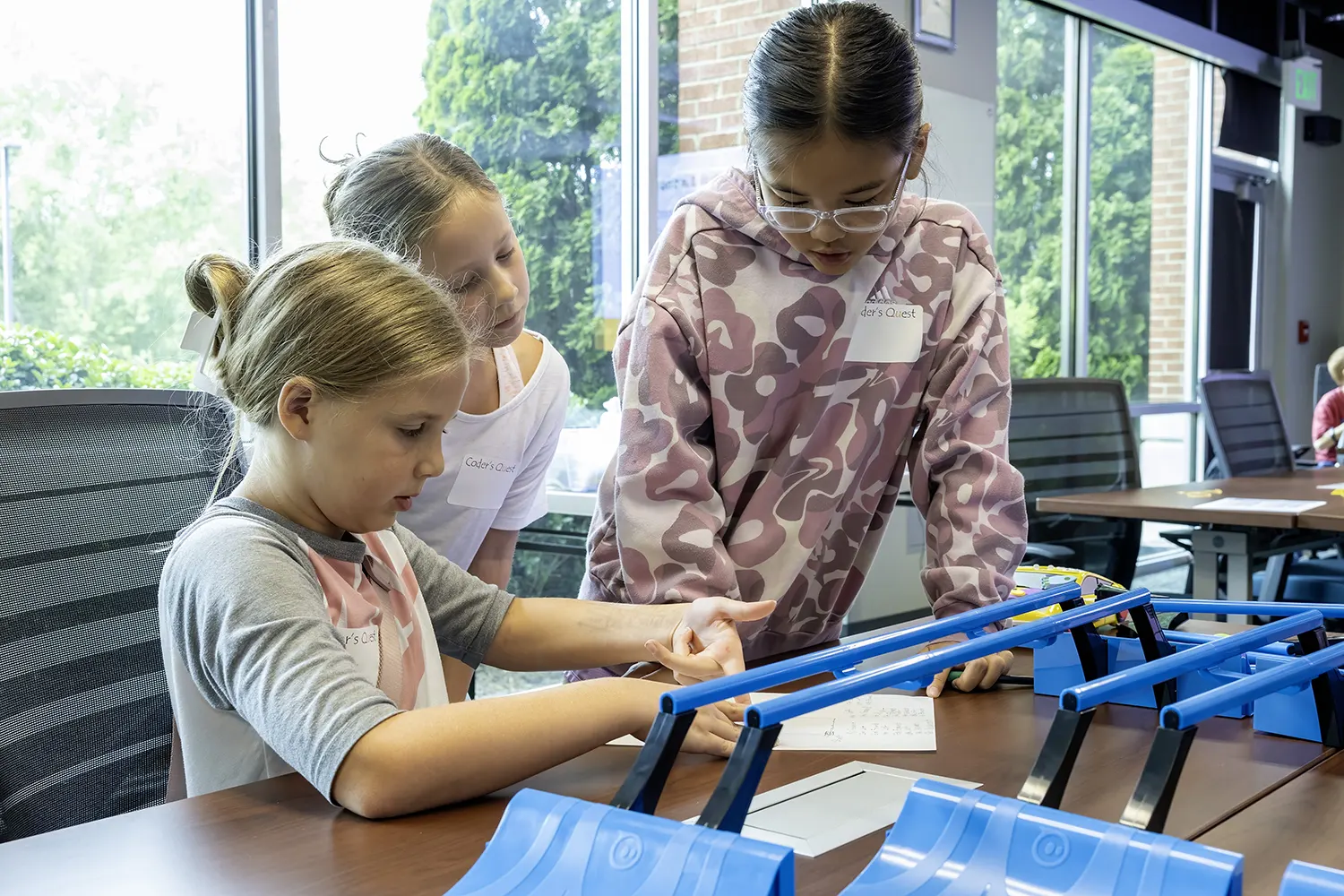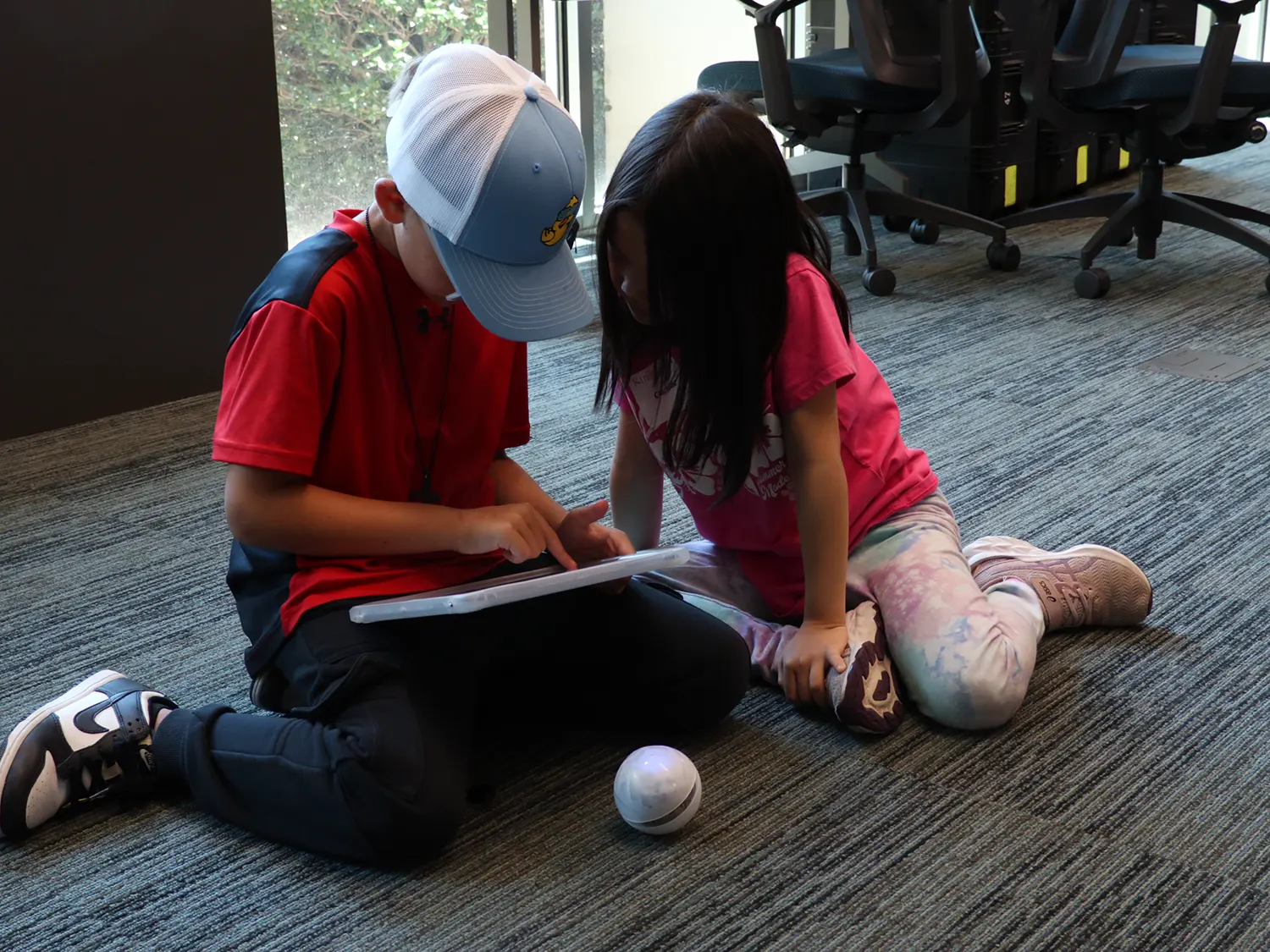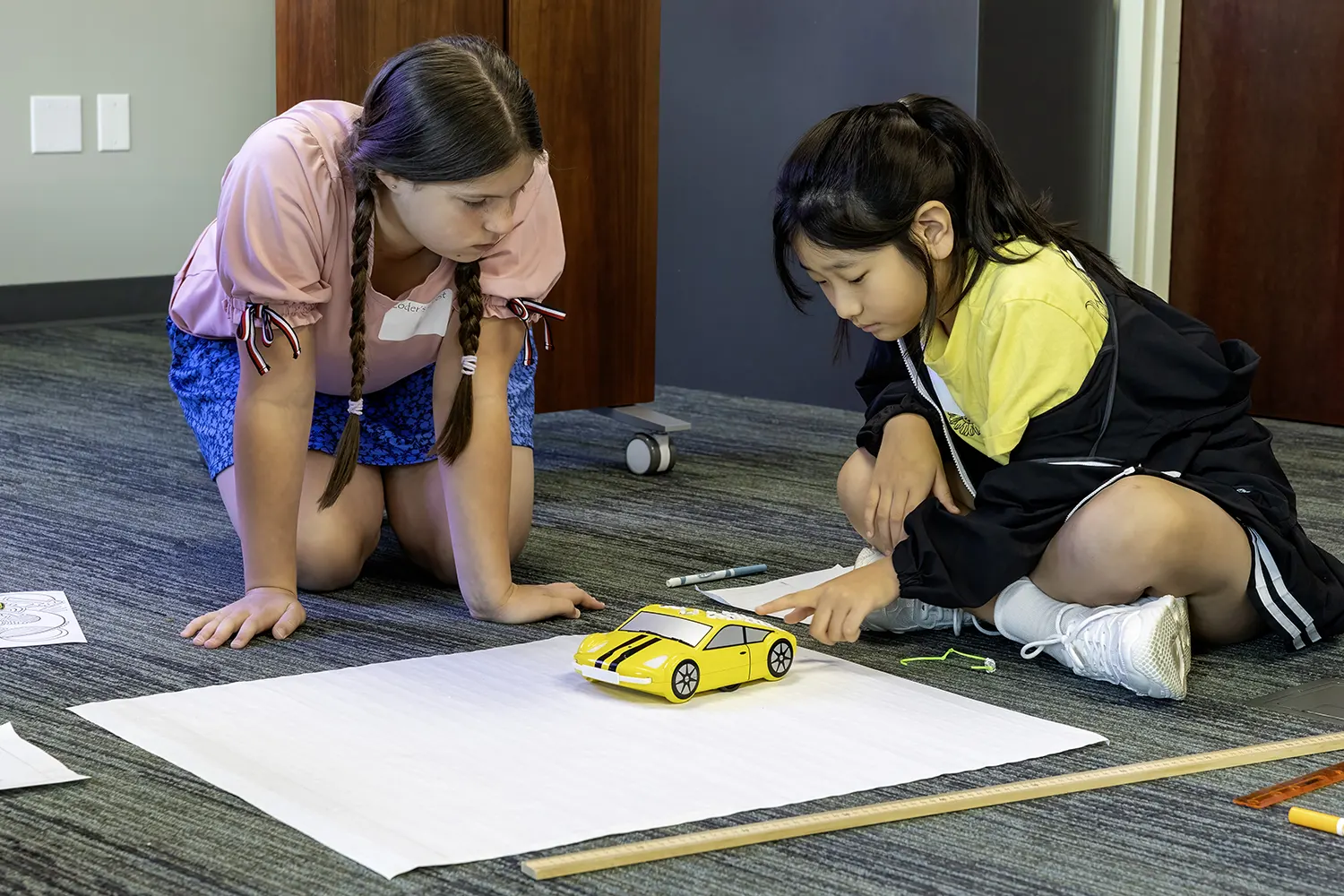Students experience introduction to coding in two events hosted by ORISE

Although it’s something that we may not think about, coding is all around us. Coding is used to make devices that we use everyday function properly, including cell phones, traffic lights, washing machines, smart TVs, and so much more. Since coding plays such a big role in our lives, it’s important to introduce this subject to children at an early age.
ORISE hosted the KinderCoding Mini-Academy on June 26 and Coder’s Quest Mini-Academy on June 27. These events were designed to introduce the basics of coding to elementary-aged students. During the academies, students were able to discover that coding can be easy and fun, and they were able to learn new skills to practice with their peers.
The KinderCoding Mini-Academy was held for rising 1st-3rd grade students. During the event, students got to take part in various activities, including making a bracelet to represent their name in code, programming Sphero robots using block coding, and using their robot to complete a variety of tasks throughout the day. When asked why it’s important to start teaching code and other STEM (science, technology, engineering, mathematics) subjects to students at such an early age, instructor Hayley Young gave an insightful answer.

“The earlier we can teach young kids coding, the better,” said Young, who is also a middle school teacher at Bearden Middle School in Knoxville, Tenn. “Even if these kids don’t grow up to go into a career in computer science or engineering, the critical thinking and creativity that it takes to code something teaches students the skills to become a life-time problem solver.”
The KinderCoding Mini-Academy is a unique opportunity for young children because it teaches them the basics of coding, but in a way that is fun, engaging, and easy to understand. Whether it’s getting to drive the Sphero using an iPad or completing an obstacle course, participants came away with new knowledge while also getting to spend the day having fun with other kids who were also interested in STEM subjects.
“We learned that coding is what tells computers and electronics what to do,” said Lorelei Frey, who is a homeschooled student getting ready to start the 2nd grade. “The robots have their own language and we got to code them to tell them what to do.”
With similar lessons and activities, Coder’s Quest was held on June 27 for rising 4th-6th graders. Once students learned how to code the Sphero, they used activity mats to practice their new skills. For example, the participants maneuvered their robot through a golf course while having to avoid water and sand traps. These types of activities allowed the students to take what they had learned and apply it, while also solving problems along the way.

“The best part of this opportunity is that the kids love to learn,” said Young. “It’s so fun to have a room full of students who want to be here and are interested in the subject matter. It’s kind of like learning a new language. Coding is a language of its own. When we can introduce these kids to STEM at an early age and they are so fascinated, we can really make a difference.”
Want to learn more about all the other education programs offered by ORISE? Check out all the incredible K-12 events we have had this summer!
Media Contacts
Pam Bonee
Director, Communications
Phone: 865.603.5142
pam.bonee@orau.org
Wendy West
Manager, Communications
Phone: 865.207.7953
wendy.west@orau.org
The Oak Ridge Institute for Science and Education (ORISE) is a U.S. Department of Energy (DOE) asset that is dedicated to enabling critical scientific, research, and health initiatives of the department and its laboratory system by providing world class expertise in STEM workforce development, scientific and technical reviews, and the evaluation of radiation exposure and environmental contamination.
ORISE is managed by ORAU, a 501(c)(3) nonprofit corporation and federal contractor, for DOE’s Office of Science. The single largest supporter of basic research in the physical sciences in the United States, the Office of Science is working to address some of the most pressing challenges of our time. For more information, please visit science.osti.gov.

